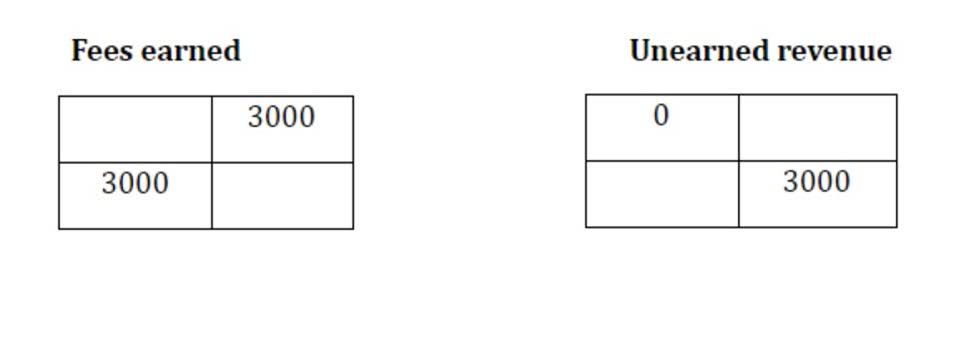
A general requirement of this rule is that a lawyer must returned unearned fees upon the end of the representation. In In re Mance (2010), the District of Columbia Court of Appeals ruled that attorneys must return unearned fees upon termination of representation, even if labeled non-refundable. Such decisions underscore the importance of transparency and fairness in financial arrangements. In Texas, the State Bar’s Professional Ethics Committee has clarified that non-refundable retainers must be explicitly stated and justified by the nature of the services provided. This ensures clients are not unfairly deprived of funds without retainer money receiving agreed-upon services.
Factors Influencing Retainer Fees
- Typically, attorneys send their clients monthly billing statements detailing the expenses incurred.
- There are several ways in which both the professional and the client benefit from a retainer fee agreement.
- Your retainer agreement, the contract outlining the attorney-client relationship, is crucial in determining refund eligibility.
- This model requires meticulous time tracking and transparent communication to ensure that both parties are aligned on the hours worked and the corresponding charges.
- Here is a straightforward guide on how to set average retainer fees that are fair, competitive, and reflective of the services provided.
- For more complex cases or those involving high-stakes litigation, retainer fees can exceed $10,000.
A retainer fee is an advance payment that a client makes to a professional, and it is considered a down payment on the future services rendered by that professional. Regardless of occupation, the retainer fee funds the initial expenses of the working relationship. For this reason, these fees usually remain separate from the hourly wages of the consultant, freelancer, or lawyer. This ensures that money is not used for personal purposes before fully performing services. Retainer fees are essential for creating a clear and stable relationship between lawyers and clients. They offer peace of mind by setting financial expectations right from the start.

Retainer Fee Explained: Unlocking Its Role & Importance
- However, lawyers must still adhere to any applicable jurisdictional rules and ethical obligations regarding the handling of retainer funds.
- Portions of retainer fees can be refunded if services end up costing less than originally planned.
- Examples of advance fees include flat fees for a specific scope of work or an initial deposit required to commence representation in an hourly billing arrangement.
- A retainer is an upfront fee that a client pays to a lawyer to secure their services.
- By receiving a retainer upfront, lawyers can focus on the case without worrying about immediate payment.
This means that even if the lawyer doesn’t perform any work for the client, they get to keep the fee. This type of arrangement is great for clients who need ongoing legal representation and advice for legal matters. The client pays a monthly fee to access the contractor’s services for the length of time needed. These initial funds are used to cover immediate case-related expenses, such as court filing fees, costs for obtaining documents, and time spent on initial research. unearned revenue This ensures the attorney is compensated for preliminary work without delay. Understand how a lawyer retainer fee functions as an advance deposit for legal services, held in a trust account and billed against as your case progresses.

What Are Some Optional Components That Should Be Included in a Retainer Fee?

When hiring an attorney, it is important to understand the terms of the retainer agreement. Some attorneys offer refundable retainers, while others require non-refundable retainers. Additionally, it is important to understand the different forms of payment for legal services, such as flat fees and hourly fees. By understanding these terms, clients can make informed decisions about their legal representation.

- Now, what has been used already in support of your case is another story, but the lawyer does owe you a proper reporting of what was spent and how.
- There are various types of retainer fees, each with its own purpose and implications for both the client and the attorney.
- It allows clients to secure their lawyer’s services in advance, often required when dealing with complex or time-sensitive matters such as litigation or high-stakes negotiations.
- Lawyers hold the fee in a dedicated account and deduct it after they complete the work.
- This rule furthers the so-called anti-commingling principle—that a lawyers shall not commingle client money with the lawyer’s money.
The retainer is usually a fixed amount that the client commits to pay the attorney on a monthly basis in exchange for the opportunity to engage him in the future when legal issues come up. The attorney will then invoice the client at the end of the month, and transfer the fee from the special account into his account. If the case takes more work than is covered by the retainer, the attorney will bill the client for more.
- For clients with whom you have a long-term relationship, you may consider offering a lower retainer in exchange for ongoing work.
- Lawyers sometimes ask for money up front in the form of a security retainer or advanced payment retainer.
- Lawyers use retainers to help ensure payment, client peace of mind, and protection for themselves and their clients.
- You pay for the attorney’s time in advance so they can answer legal questions and assist when needed.
- Upfront payment is an expression of trust, and your clients expect you to accurately track the work you’ve done for them.
Mismanagement of client funds can lead to disciplinary actions, legal consequences, and https://www.bookstime.com/ severe damage to a lawyer’s or law firm’s reputation. In addition to a lawyer’s retainer and hourly fee, clients are often expected to pay certain other expenses related to their case. As such, these additional expenses should always be discussed before hiring a lawyer. Further, an attorney should be willing to provide explanations of any other fees that may be included in monthly billing statements.
